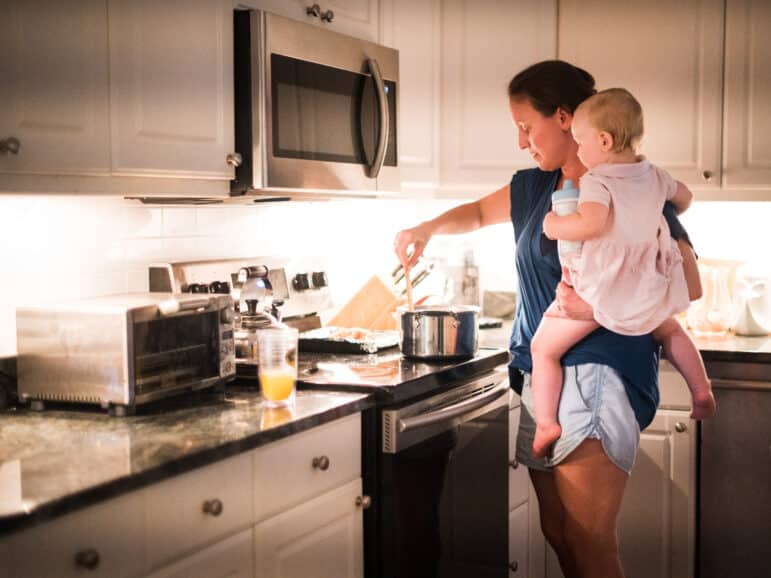Written by: Reggie Bicha, President & CEO, American Public Human Services Association (APHSA)

At this moment of heightened political and economic tension, the ongoing government shutdown poses severe risks to the most vulnerable among us. As the leader of the bipartisan national association representing state, county, and city human services agencies, I’m compelled to call on our nation’s lawmakers from both parties to end the shutdown now—and to chart a responsible path forward for funding the programs that allow families to meet their most basic needs.
How the Shutdown Undermines the Safety Net
“This isn’t about budget arithmetic; it’s about who we are as a nation. The programs that feed families, protect children, and strengthen communities are not optional.“
When federal funding halts or even wavers, the ripple effects are far greater than headlines suggest. The people most affected are those already living closest to the edge: single parents working multiple jobs, elderly people on fixed incomes, people with disabilities unable to work, and children facing food or housing insecurity. Much of the work of supporting families and others in need is funded through federal-state partnerships. These partnerships rely on continuity and predictability. More clearly, state, county, and city human services agencies rely on consistent federal support to help families put food on the table, keep their homes warm, and access child care.
These programs cannot operate without trust in the stability of their federal partners.
The Growing Threat to Food Assistance
The Supplemental Nutrition Assistance Program (SNAP), like other economic supports programs administered by state and local agencies, is dependent on federal dollars, federal rules, and federal oversight. SNAP—our nation’s largest and most effective tool for reducing hunger, and one of the most proven tools to reduce poverty overall—faces a new funding crisis in November if Congress doesn’t act.
This vital program supports an average of almost 42 million people each month, with 88 percent of recipients being children, older adults, or people with disabilities. SNAP strengthens people and the economy alike. Every dollar spent through SNAP generates about $1.50 in economic activity, fueling local businesses, supporting more than 388,000 jobs, and adding $32 million in farm income.

If the shutdown continues, USDA has said there will not be enough funding to provide SNAP benefits for November and beyond. States are already notifying their SNAP participants to prepare for no SNAP benefits in just a few days. Families are beginning to experience the fear of not knowing how to obtain food and food banks are worrying that they will be overwhelmed and unable to fulfill demand.
Just as SNAP faces uncertainty, the Special Supplemental Nutrition Program for Women, Infants, and Children (WIC)—a vital resource for nearly seven million mothers, pregnant women, and children—is also under financial strain. Temporary funding has kept it steady for now, but long-term stability remains in question.
The human cost of a prolonged federal shutdown impacting social programs is immense. Children face higher risks of developmental delays, behavioral issues, and poor academic performance due to hunger. Pregnant women and infants on WIC may experience worsened health outcomes, such as low birth weights or nutrient deficiencies. And seniors and people with chronic illnesses may see health deterioration due to lack of consistent nutrition, increasing hospitalization and health care costs.
A System Under Strain
Critical programs like the Low-Income Home Energy Assistance Program (LIHEAP), Head Start, and others are facing the imminent risk of running out of funds. While some programs such as Temporary Assistance for Needy Families (TANF), child welfare, and child care funding streams still have short-term resources available at the state and local levels, a prolonged shutdown would quickly erode these safety nets. Many states are being forced to front the money to keep essential services running, hoping for eventual federal reimbursement, but states can do this for only so long. Simply put, a government shutdown doesn’t just halt federal paychecks—it puts lives and futures on hold.
A Bipartisan Call to Action
We must shift the conversation from partisan brinkmanship to pragmatic stewardship of our national commitments. Here’s what I urge of lawmakers from both sides:

- Forge a resolution and fund the government fully and immediately so that essential human services programs continue uninterrupted.
- Modernize federal budgeting to provide stable, predictable funding for human services.
- Prioritize communication and coordination between federal, state, and local partners.
- Keep people at the center of every decision.
This isn’t about budget arithmetic; it’s about who we are as a nation. The programs that feed families, protect children, and strengthen communities are not optional—they are the foundation of our shared prosperity. I call on Congress to act now. End the shutdown and reaffirm our collective commitment to a country where no child goes hungry and every family has the basic means to thrive.
About the Author

President & CEO, American Public Human Services Association (APHSA)
Share this post on your social media accounts: